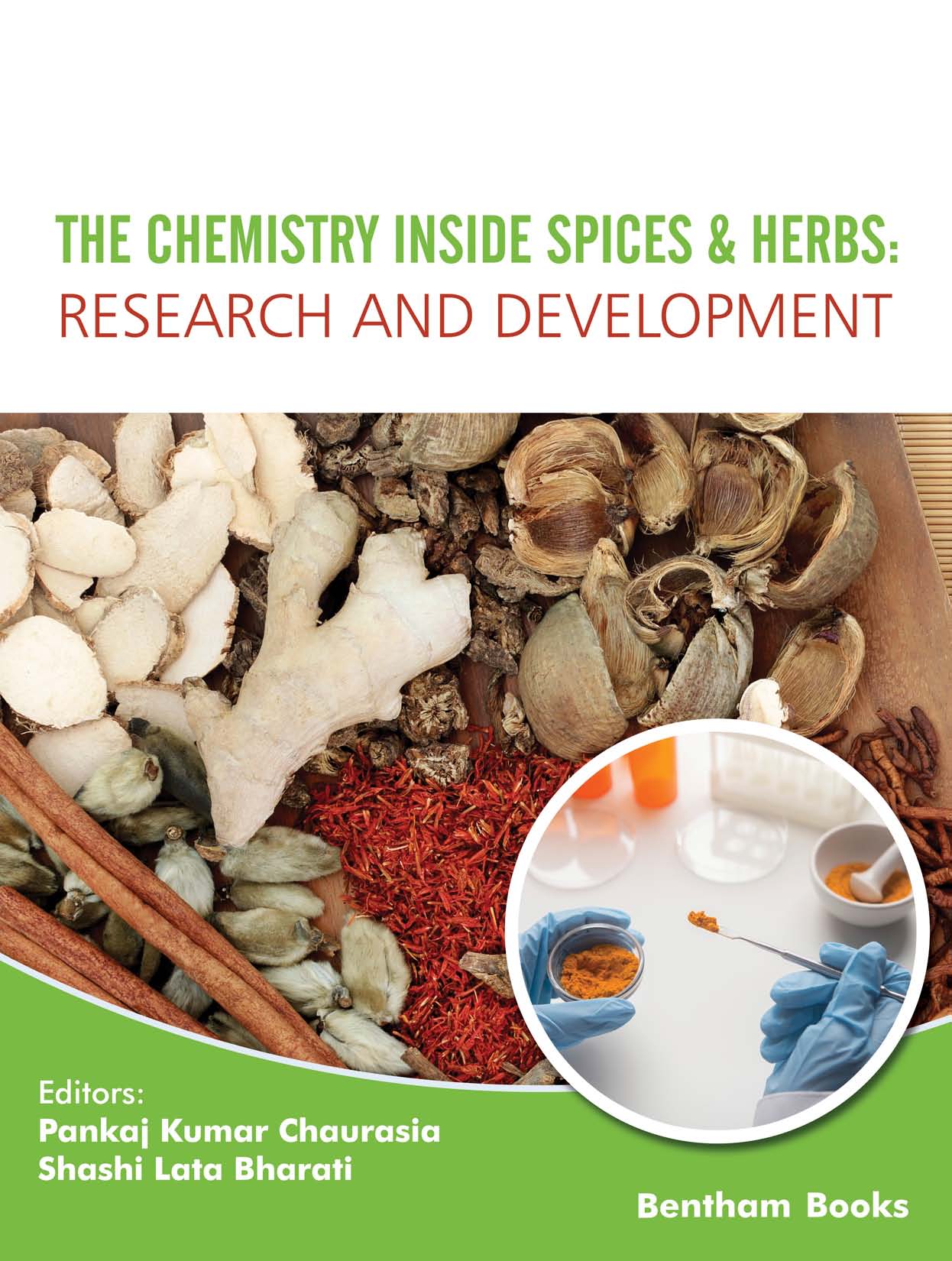Spices and Herbs in the Treatment of Neurobiological Disorders

- Authors: Rashmi V. Trivedi1, Nitu L. Wankhede2, Mayur B. Kale3, Milind J. Umekar4
-
View Affiliations Hide Affiliations1 Smt. Kishoritai Bhoyar College of Pharmacy, Kamptee 441002, India 2 Smt. Kishoritai Bhoyar College of Pharmacy, Kamptee- 441002, India 3 Smt. Kishoritai Bhoyar College of Pharmacy, Kamptee- 441002, India 4 Smt. Kishoritai Bhoyar College of Pharmacy, Kamptee- 441002, India
- Source: The Chemistry inside Spices & Herbs: Research and Development: Volume 1 , pp 51-80
- Publication Date: April 2022
- Language: English
Spices and herbs have been used for centuries for treating and preventing many ailments. They have been popularised over the commercial and new drugs due to their purported therapeutic efficacy with lesser side effects, easy availability, and costefficiency. Herbal extracts contain mixtures of phytochemicals, mainly secondary metabolites, which include fatty acids, sterols, alkaloids, flavonoids, glycosides, saponins, tannins, terpenes, and many others. Phytochemicals play a vital role in maintaining chemical balance in the brain and, therefore, can be targeted to treat neural disorders. In recent years, many herbs and spices have gained attention in the treatment of neurological disorders. Although the precise mechanisms of action of herbal medicines have not yet been defined, some of them have been shown to exert antiinflammatory and antioxidant activities. Several herbs and spices have also shown neuroprotective activity, and their extracts have been found to be effective in learning and memory improvement, depression, anxiety, pain, Alzheimer’s disease and other neurodegenerative conditions. Based on the investigations on herbal plants and neurological substrates in disease conditions, herbal medicines can be effectively used in the treatment of various neurological disorders.
-
From This Site
/content/books/9789815039566.chap3dcterms_subject,pub_keyword-contentType:Journal -contentType:Figure -contentType:Table -contentType:SupplementaryData105

